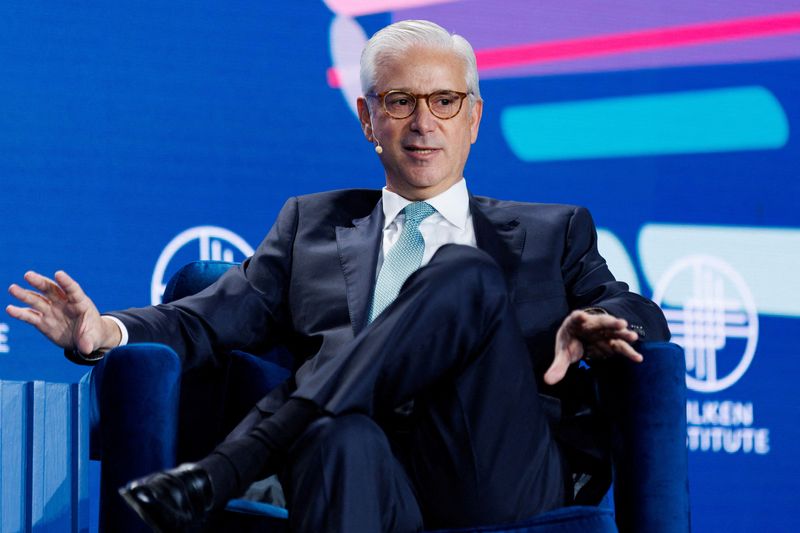Bankers see tepid investments due to uncertainty over US elections, geopolitics
By Nupur Anand and Pete Schroeder
WASHINGTON (Reuters) - Questions about the direction of the United States and wars in Ukraine and the Middle East are making investors cautious, bank executives gathered in Washington said.
But there is some optimism about economic activity picking up as clarity over policy emerges after the Nov. 5 U.S. elections, bankers said at a conference Wednesday and Thursday.
"The uncertainty around the election has people kind of on a pause basis," Wells Fargo CEO Charlie Scharf said.
"When we look at loan demand and confidence in businesses, we see that people want to get through the election cycle to understand where exactly we're going and what the policies actually will be," he added.
Companies are starting to put off their pursuit of transformational deals until after the U.S. presidential election, investment bankers and lawyers told Reuters last month, as they want more certainty around regulatory and economic policies under a new administration.
Robin Vince, CEO of BNY, concurred, adding clients want to wait for clarity before making big decisions.
Democratic candidate Vice President Kamala Harris and her rival, Republican former President Donald Trump, are locked in a tight race for the White House.
The outcome of the elections will not just affect fiscal, trade and tech policies but also the U.S.' relationship with other countries, which has investors concerned, said Tim Adams, CEO of the Institute of International Finance, an industry group.
Wars in Ukraine and the Middle East are adding to the uncertainty and keeping investors at bay.
“It may diminish over time … but it may not. Mistakes happen, look at how we tripped into World War Two," said JPMorgan Chase (NYSE:JPM ) CEO Jamie Dimon.
Half of the world's population has elected or will elect new governments in 2024, the International Monetary Fund noted in a report this week.
In many cases, those new leaders' policy plans are unclear, but will carry significant economic consequences.
Wall Street executives have raised concerns that Trump's planned import-tariff hikes could reignite inflation, while his promised tax cuts could widen the U.S. deficit.
Next year, bankers are hoping for a rebound in demand and investment.
"I do think there will be some pickup of investment post the election," Santander (BME:SAN )'s executive chairman Ana Botin said.
Source: Investing.com
